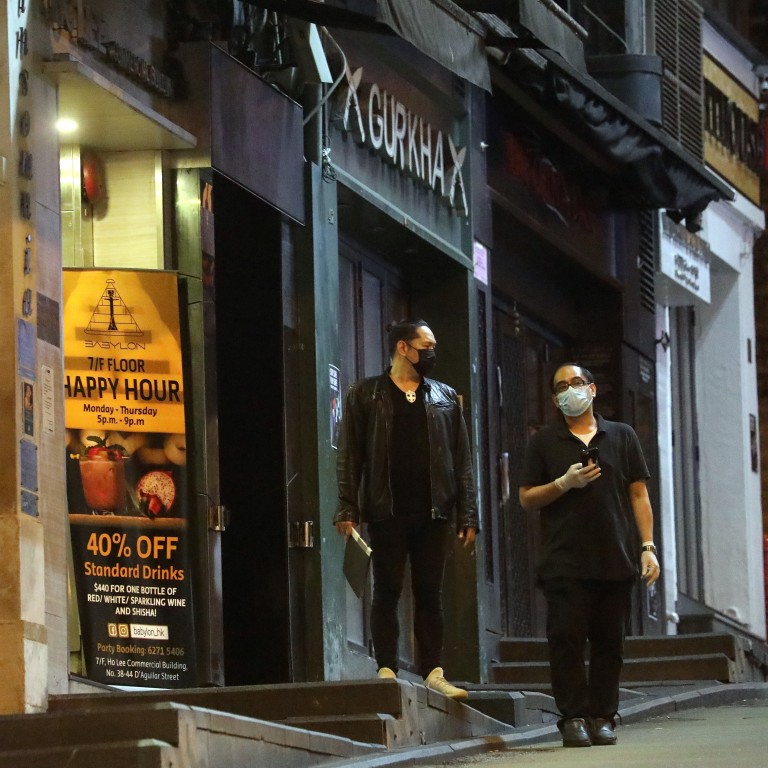
Coronavirus: Hong Kong businesses ‘do not know what to do’ as bar and pub shutdown kicks in
- Owners of bars serving food say they are not sure if they are covered by the ban, accuse government of delivering confused messages
- Those breaking the anti-contagion order face a HK$50,000 fine (US$6,450) and six months in jail
Bar and restaurant owners have accused the Hong Kong government of failing to provide clarity over its two-week closure of drinking venues even as it came into force on Friday night, with fears raised over how the social distancing law will be enforced.
They also reissued their plea to officials to cover 80 per cent of workers’ pay and subsidise rent after officials on Thursday ordered the shutdown to tackle Covid-19’s spread.
The ban takes effect at 6pm on Friday and targets any premises, including bars and pubs, which are “exclusively or mainly used for the sale or supply of intoxicating liquors for consumption in that premises”.
But it has left owners of bars serving food in limbo over whether they would break the law by staying open, risking a HK$50,000 fine (US$6,450) and six months in jail.
Gordon Lam Sui-wa, convenor of the Hong Kong Small and Middle Restaurant Federation, said while 1,100 bars would definitely close because their dominant business was selling alcohol, it was unclear how the regulations would apply to drinking venues also serving food, which are categorised as “bar and restaurants” on their liquor licence.
“There are a lot of grey areas over whether these [bar and restaurants] can continue to operate,” he said, fearing that law enforcement would not be working to the same definition when conducting checks of different establishments.
He reported some food-serving bars were not taking any chances and had already decided to close their doors for the ban, while questions were also being asked why restaurants were not covered if the aim was to ramp up social distancing.
In the latest emergency order issued under the Prevention and Control of Disease Ordinance, any part of a catering business premises that is exclusively or mainly used for the sale or supply of liquors for consumption must also be closed.
Hong Kong records 43 new coronavirus infections, tally at 845
An owner of a bar and restaurant, surnamed Wong, said many venues such as his had an open kitchen located within the bar area, wiping out their food operation.
“Our cooking area is within the bar area, which means we would not be able to provide food [to our customers]. What will happen to our food stock?” Wong said.
I believe many owners in our sector do not know what to do
“If the government wants to step up measures to contain the coronavirus, we would definitely support that.
“But now that the [announcement] of the ban came just [hours] before and there are no clear instructions on how we could deal with such situations.
“I believe many owners in our sector do not know what to do,” he explained.
Asked to define “exclusively or mainly”, deputy director of food and environmental hygiene Diane Wong Shuk-han said on Thursday that if a place had 90 per cent of business selling alcohol, it “would not be disputed” that it was covered by the ban.
Michael Fung, who operates a Japanese whisky bar in Tsim Sha Tsui, accused the government of not providing enough help to bar owners.
“When the government earlier required catering businesses to have our tables separated by at least 1½ meters and that we must operate no more than half of the seating capacity, we could only serve [fewer than] 10 customers,” he said.
Will coronavirus trigger global food crisis?
“Under the latest ban, we will have to close for 14 days. What about our employees’ salary? Plus, we think it’s unlikely that our landlord will negotiate [reducing] our rent.”
He urged the government to provide clearer guidelines and offer extra support to the sector.

